"Suddenly, a Rock was Thrown and My Face was Covered in Blood"; Citizens Attacked by Rocks Recall Their Ordeals
Hila Lam just wanted to return home, while Netai Wolfman was driving on the road early in the evening. However, their journeys, along with many others, ended with chilling stone attacks. Now, they recount their experiences and warn: "It could happen to you too."
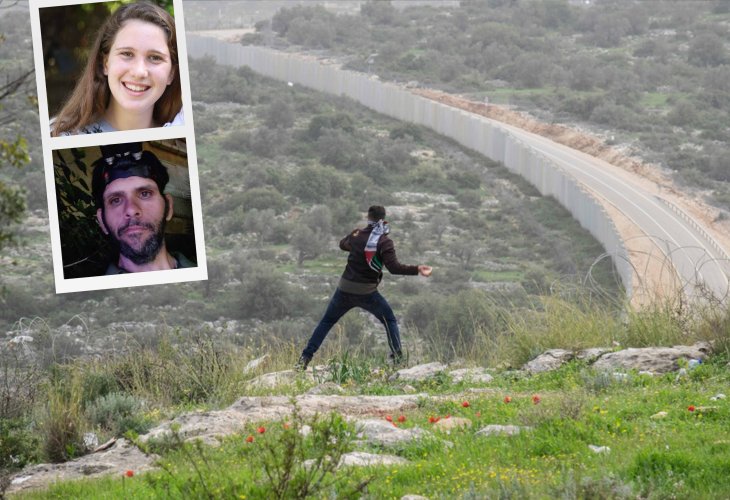 (Illustration photo: shutterstock)
(Illustration photo: shutterstock)Have you heard about rock terrorism? Perhaps not enough, because the topic hasn't really made headlines. Maybe that's why not everyone is aware that in some areas of the country, Jewish residents often suffer from rocks being thrown at vehicles passing on the roads.
Just last week, three vehicles were attacked in Gush Etzion, near the settlement of Tekoa, and two women were lightly injured. In other roads in the area, residents complain of feelings of fear and dread due to attempted rock and Molotov cocktail attacks, and similar stories are heard all the time in the Shomron region. We went to speak with some people who experienced this and were horrified by the descriptions.
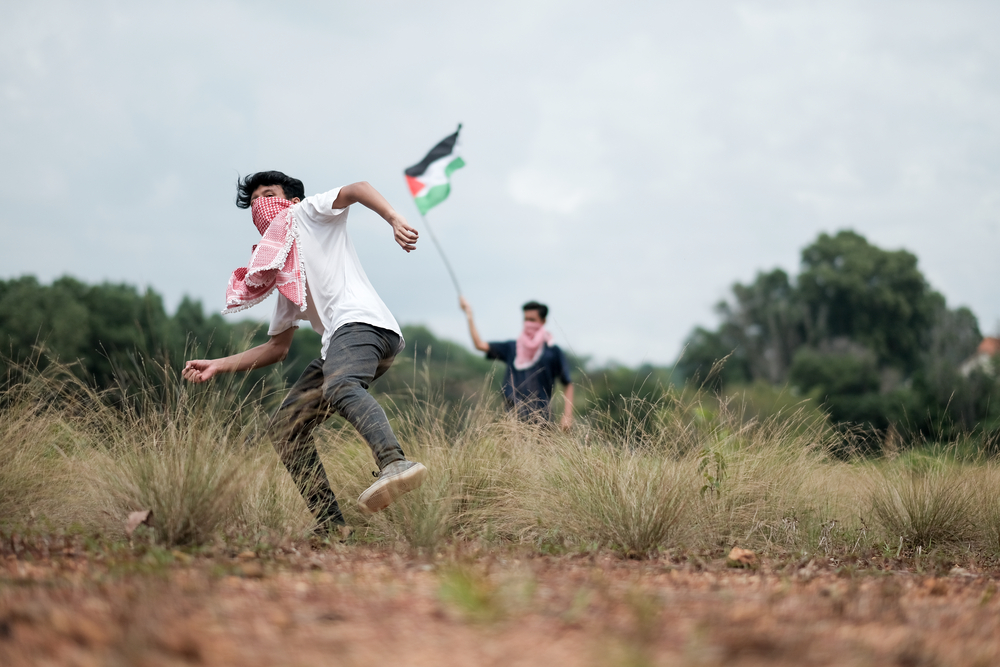 (Illustration photo: shutterstock)
(Illustration photo: shutterstock)"The Windows Shattered and I Was Covered in Blood"
We spoke with Hila Lam exactly one week after she was injured by a thrown rock. "You're catching me just as I'm getting into the car for the first time after the incident," she tells me. "It's not easy; it totally takes me back to those moments, but it seems to me that it's part of the healing process, you have to return to routine."
She recalls the day when it all happened: "I was driving from the Tekoa settlement to the Elazar settlement where I live. It's a route I'm very familiar with, making the drive up to four times a day. My sister lives there, as do some of my friends. I left Tekoa at midnight and began the drive. After about seven minutes, I suddenly realized that a rock had been thrown at me. I heard a huge 'boom' as the front windshield shattered, and the glass hit my head.
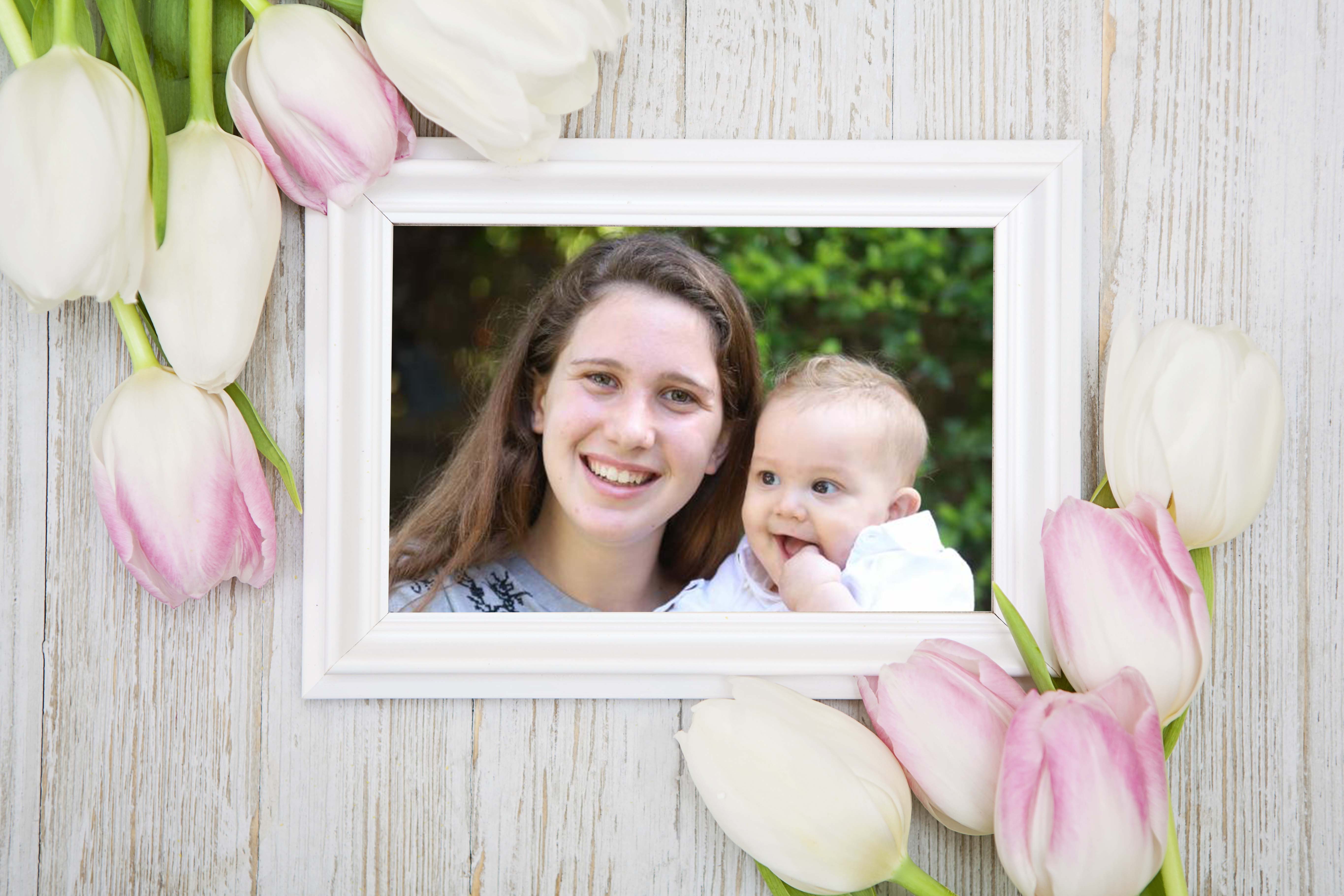 Hila Lam
Hila LamDid you realize what happened?
"Yes, I immediately understood that an Arab threw a rock with the intention to kill or scare, or both. Meanwhile, I felt a lot of blood coming down from my head. I've never had a similar blow, so I couldn't gauge how much blood I was losing, but I felt my whole face was covered in blood, and glass got into my mouth.
"My first instinct was to keep driving, and that's indeed what I did, while calling home at the same time. My dad answered, and I told him I'm on my way home, a rock was thrown at me, and there's a lot of blood coming from my head. Dad stayed on the line with me, and at the same time, Mom called the emergency services, who sent security forces and MDA. I continued to drive, having to bend down as the windshield was broken and I couldn't see the road. Dad kept talking to me until I arrived at the Efrat settlement.
"I stopped at the entrance to the settlement, and Dad immediately ran to me. Meanwhile, an ambulance and military forces arrived and asked many questions. A few minutes later, my mom came too, and we went together to the hospital, where we stayed until 3:30 in the morning for stitches. It turns out the injury was quite serious, and the gash was very large. For an hour and a half, they did four internal stitches and 12 external ones, but it's clear it could have ended much worse. It was a big miracle."
Do you think the security forces reacted appropriately?
"That's a good question. I wasn't very focused, but it seemed they tried to get all the details and information from me. They kept asking me to try to remember exactly what happened and how the person who threw the rock looked, because they wanted to go after him right away. So yes, there was a feeling they were trying to do something, but I'm quite skeptical about the success they'll have in the matter.
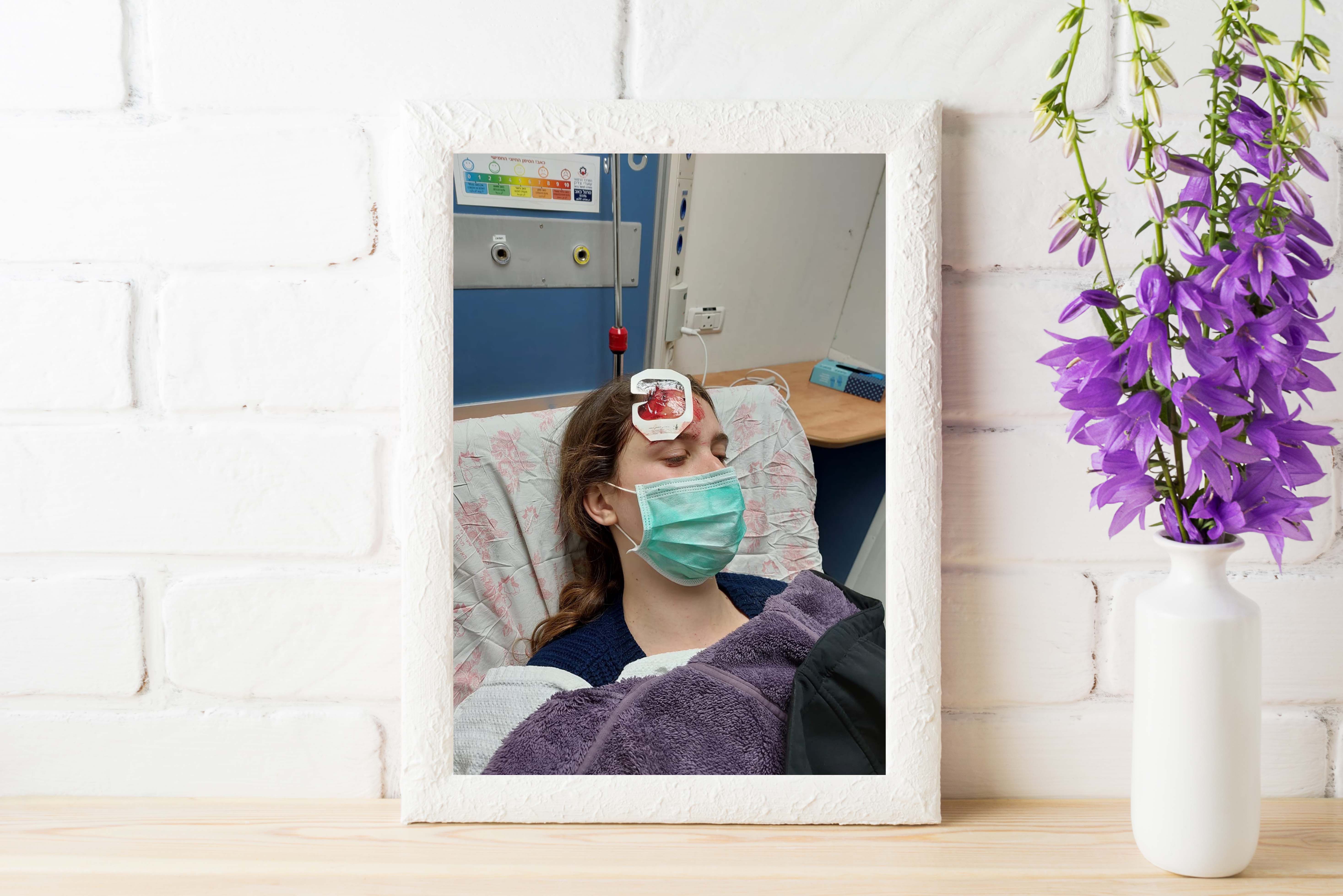
"I think this issue is much deeper because I'm not the first to experience rock-throwing on this road. It happened to my friend, to my aunt, and to other people I know. Though I never heard of anyone close to me getting hurt. Usually, the rock misses the vehicle or just hits the body. But the danger is huge. I think as long as the army does not increase security in the area, these acts will continue."
At this point, Hila's mother, Orit, joins the conversation: "I think an absurd situation has been created here," she says, "because those who should be afraid to drive on this road are the Palestinians, not us. The reality that we are the ones afraid and thinking twice before every drive on the road is unreasonable. It's clear the army needs to focus more on road security to prevent this from happening."
Terror in the Shomron
Another area where residents have been facing a tough situation in recent months is the Shomron region. Many hear about rock throws and Molotov cocktails in the area, as well as vehicle thefts happening in broad daylight, sometimes while passengers are still inside the vehicle.
Nitai Wolfman lives near the settlement of Ali, and last week, while driving on a road late in the evening, he suddenly saw rocks being thrown at him, hitting the front window of the vehicle. Nothing happened to him, but a young high school girl hitchhiking with him was injured in her hand.
"I immediately understood what happened," he recalls, "If I were alone, I would certainly have stopped the car and pursued the perpetrator who threw the rocks. Allow me to assume it was a young kid. It's clear to me that if I don't turn him in to the police, he will continue throwing rocks, and there's no chance anyone will stop him. But at the last moment, I decided to keep driving. I saw the hitchhiker was terrified and shaking all over. I didn't want to scare her even more, so I continued driving."
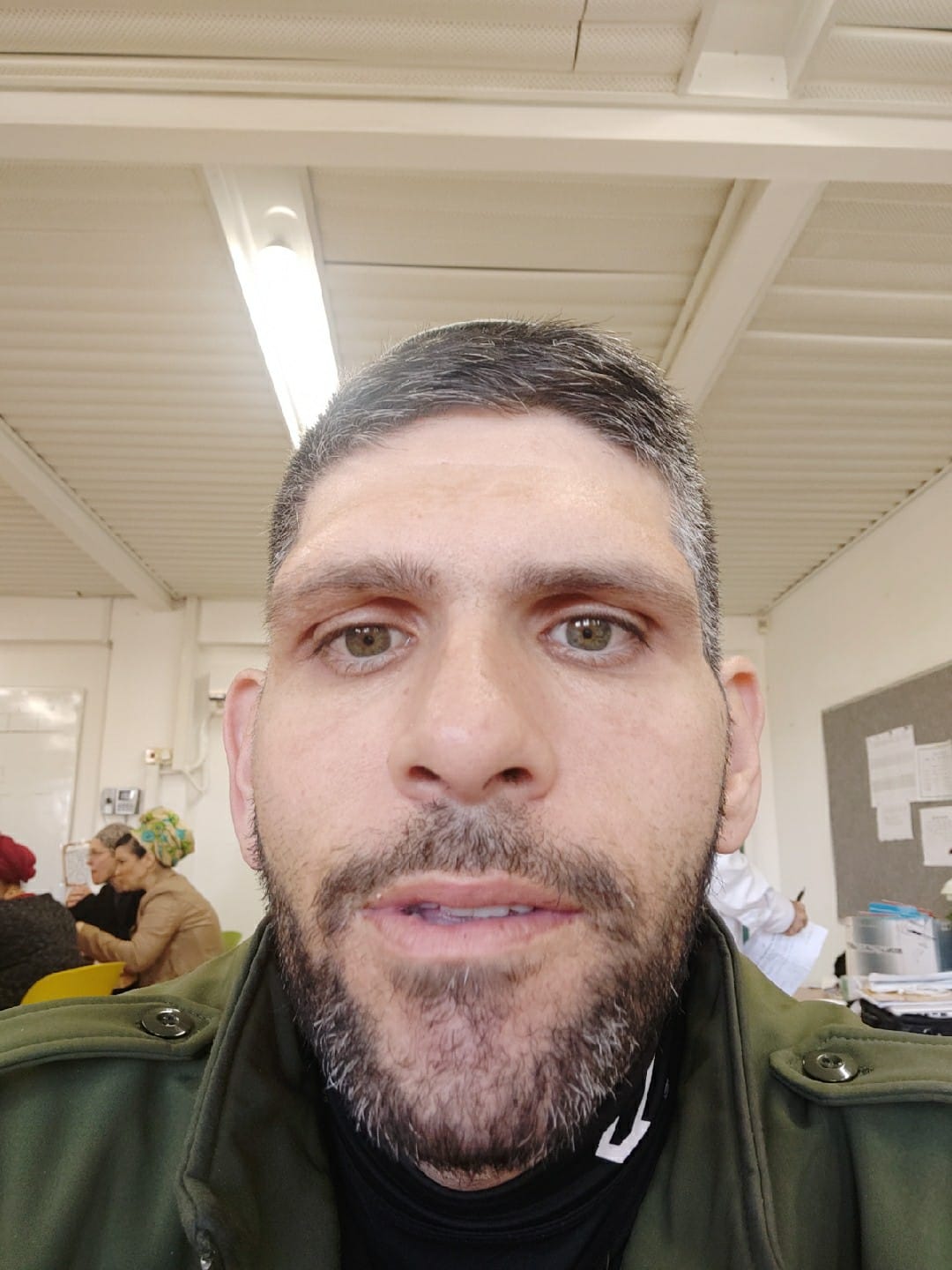 Nitai Wolfman
Nitai WolfmanWere you not afraid yourself?
"I wasn't afraid; I believe every rock has its address, and if something is meant to happen to me, it will happen anywhere. But we've seen many cases in the past proving that rocks can kill, and we can't allow this situation to continue. Our security forces must show more presence within the villages, and we cannot let our enemies do as they please in our territories."
Wolfman emphasizes that he's not the only one in the area to experience such incidents. "It happened to my friends too, and it will continue in the future as long as no one takes this seriously," he warns.
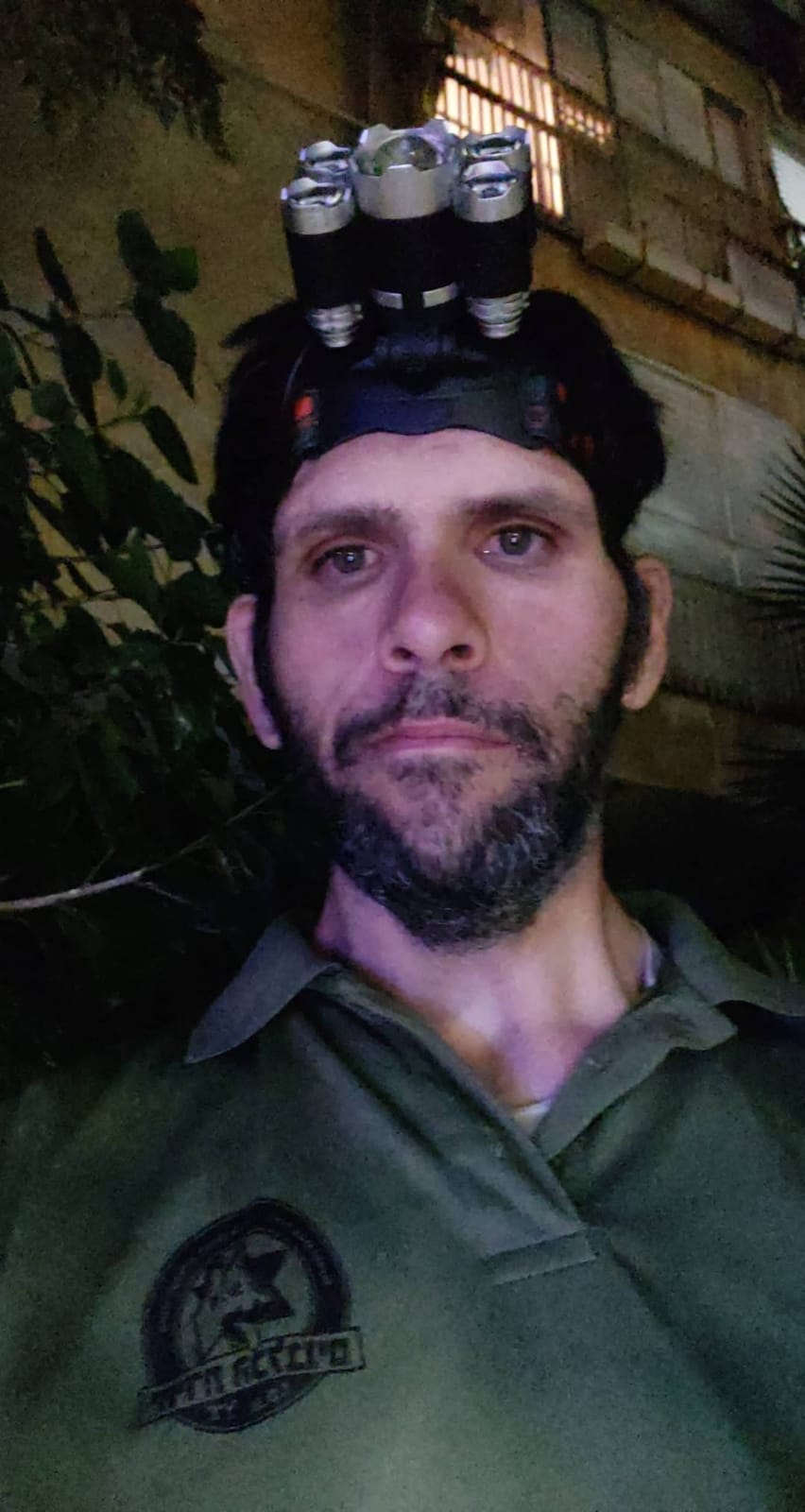
It's important to note that when it comes to the Shomron area, the root of the problem is Highway 55, which has become an intimidating road for local residents in recent years. "It's a very problematic road," says Shai Rosenzweig, head of the Alfei Menashe council. "It's actually a main route that channels all the Shomron settlements and the west, as well as everyone coming from the west into the Shomron. It's essentially a single-lane road for each direction, and for years it hasn't been touched infrastructurally. But the real problem is the phenomenon created over the past few years – more and more breaches have been discovered in the fences that are not maintained, allowing Palestinians to cross freely. This leads to stone-throwing, provocations, infiltrations, and more."
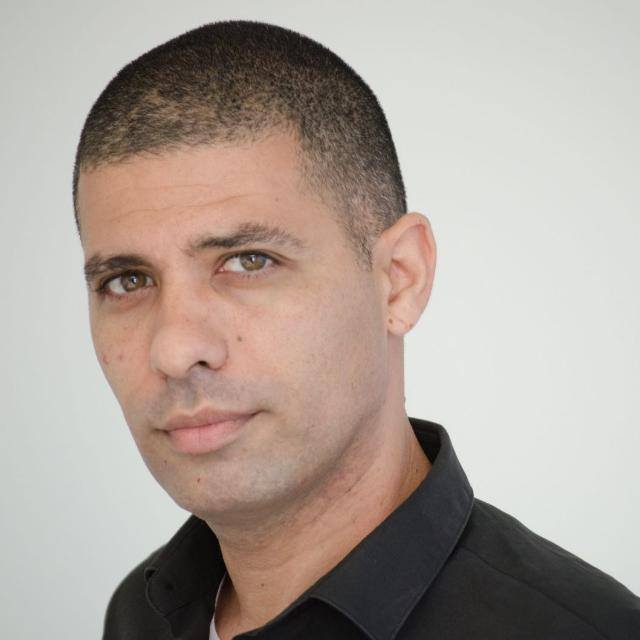 Shai Rosenzweig, head of Alfei Menashe council
Shai Rosenzweig, head of Alfei Menashe councilDoes this happen frequently?
"In our area of Alfei Menashe, it's not on a daily basis, but it certainly happens occasionally. If the State of Israel doesn't wake up and erect the necessary fences, it will only increase."
One might assume it's a matter of budget. It takes a lot of money to renew the fences...
"True, but our lives, yours and mine, and those of all the residents in the area are certainly worth more than any amount. We really feel abandoned. Just a few weeks ago, there were stone throws here day after day, and it was definitely frightening and very stressful. This is not some remote place; we are adjacent to Kfar Saba, right in the center of the country."
By the way, the Haredi settlement of Emanuel is also very close to the mentioned road, and its residents also complain that they fear driving on the road in the afternoon and evening. Especially since the road gets congested, and no one wants to be stuck in exactly that spot. "It's not just incidents of stone-throwing, but also robbery," one resident tells us, "There have been cases where Palestinians stopped cars, simply pulled people out of them, got in, and fled to one of the villages. No wonder people are afraid to travel there at night."
The IDF spokesperson responded to the article: "The IDF invests considerable efforts to eliminate rock-throwing incidents in the area and acts to locate the suspects. IDF soldiers are deployed in the area according to the situation assessment and act in various ways against anyone trying to harm the security of civilians.
The IDF will continue to act against such events both through open and covert operations, strengthening civil security."

